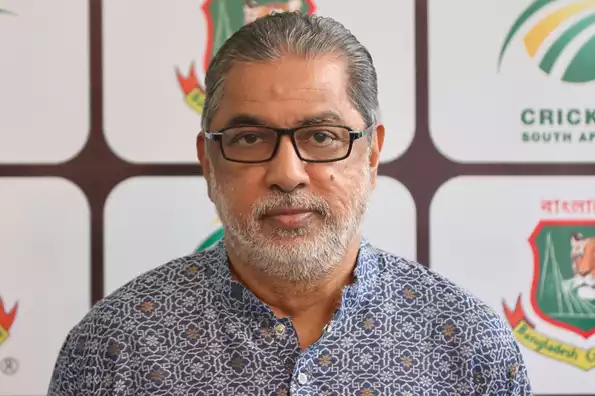Are filmmakers being silenced by Arbitrary Censorship?
Recent actions by the Central Board of Film Certification (CBFC) have ignited a debate about censorship and artistic freedom in Indian cinema. The board's demands for alterations in films like "Janaki V/S State of Kerala" and "Sitaare Zameen Par" have raised concerns about the CBFC's role in creative decisions.

In a democratic nation, where freedom of speech and artistic expression are considered fundamental rights, the recent interventions by the CBFC have sparked controversy. Two prominent cases, "Janaki V/S State of Kerala" and "Sitaare Zameen Par," exemplify a worrying trend: filmmakers are being compelled to make politically and religiously motivated alterations to secure clearance for their films.
A Name That Sparked Controversy
The Malayalam courtroom drama "Janaki V/S State of Kerala," featuring Anupama Parameswaran and Union Minister Suresh Gopi, faced censorship hurdles just before its scheduled release on June 27. The objection? The protagonist's name, Janaki, deemed inappropriate by the CBFC due to its association with Goddess Sita, as the character was portrayed as a victim of assault.
This decision, communicated without formal written notice, triggered immediate criticism. B Unnikrishnan, the general secretary of FEFKA (Film Employees Federation of Kerala), questioned whether all Hindu names derived from deities would face similar censorship, especially considering his own telefilm with a character named Janaki had previously received CBFC approval.
This isn't an isolated incident. Director M B Padmakumar encountered similar resistance regarding a character named Janaki in his film "Token Number." The CBFC suggested alternatives like "Jayanti" or "Krishnan," which lacked the perceived divine connection. The film was only approved after the name was changed to Jayanti.
CBFC’s Micro-Management of Creative Choices
While "Janaki V/S State of Kerala" highlights issues of religious sensitivity, the CBFC's treatment of "Sitaare Zameen Par," starring Aamir Khan and Genelia Deshmukh, reveals the intrusion of political influence into creative decisions.
According to a report by Bollywood Hungama, the film underwent review by the Revising Committee, headed by Vaman Kendre, after the Examining Committee's suggested cuts were deemed unsatisfactory. The suggested changes included:
- Replacing "Businesswoman" with the gender-neutral "Businessperson."
- Replacing “Michael Jackson” with the generic term “Lovebirds.”
- Removing a visual element tied to the word “Kamal” (interpreted as a reference to the lotus, the BJP party symbol).
- Including a quote by Prime Minister Narendra Modi after the opening disclaimer.
These demands raise concerns about the CBFC's expanding role, seemingly extending to prescribing political messages within fictional narratives. The inclusion of a quote from a sitting prime minister appears as an ideological imposition.
Despite these interventions, "Sitaare Zameen Par" eventually received a U/A 13+ certificate and was released on June 20. However, the cost to artistic autonomy remains a significant question.
Are Certain Narratives Being Silenced?
The increasing instances of interference prompt the question: Will upcoming films exploring sensitive mythological or historical subjects face similar scrutiny?
Nitesh Tiwari’s "Ramayana," starring Ranbir Kapoor and Sai Pallavi, serves as a relevant example. The story of Ramayana is inherently complex, featuring emotionally charged sequences such as Sita's abduction by Ravana, her Agnipariksha (trial by fire), and her abandonment by Ram despite her pregnancy. These episodes are central to the narrative and deeply ingrained in Indian cultural memory.
Will the CBFC raise objections to the depiction of Sita’s trials? Will they argue that portraying her as a victim undermines her divinity? If using a name like Janaki is already contentious, what will become of a film that retells her entire journey, including the injustices she endured?
These are not merely hypothetical concerns. They reflect a genuine apprehension in today's socio-political landscape, where identity, religion, and ideology are increasingly intertwined.
As Satyajit Ray once stated, “Cinema’s job is not to provide answers, but to ask the right questions.” It is imperative that the CBFC remembers this fundamental principle.
Newer articles
Older articles
-
 How do graphic designers convert JPG to PDF (Portable Document Format)?
How do graphic designers convert JPG to PDF (Portable Document Format)?
-
 Priyanka Chopra reveals daughter Malti Marie has started school in New York: 'Her schedule is even crazier than mine'
Priyanka Chopra reveals daughter Malti Marie has started school in New York: 'Her schedule is even crazier than mine'
-
 Mahbub Anam replaces Faruque Ahmed as new BPL chairman
Mahbub Anam replaces Faruque Ahmed as new BPL chairman
-
 This new AI tool can help you book train tickets, get refunds and check details on IRCTC website and app
This new AI tool can help you book train tickets, get refunds and check details on IRCTC website and app
-
 Karisma Kapoor's ex-husband Sunjay Kapur's alleged last rescue clip shows him getting CPR on the ground - WATCH VIDEO
Karisma Kapoor's ex-husband Sunjay Kapur's alleged last rescue clip shows him getting CPR on the ground - WATCH VIDEO
-
 Mom-to-be Malvika Raaj shares dreamy pictures from her 'Godh Bharai' ceremony with Guruji Satsang
Mom-to-be Malvika Raaj shares dreamy pictures from her 'Godh Bharai' ceremony with Guruji Satsang
-
 Salman Khan reveals struggle with AVM and brain aneurysm on Kapil Sharma Show: Know what AVM is, its causes, and why it's so serious
Salman Khan reveals struggle with AVM and brain aneurysm on Kapil Sharma Show: Know what AVM is, its causes, and why it's so serious
-
 Twitter bans over 5 lakh accounts in India, here's why
Twitter bans over 5 lakh accounts in India, here's why
-
 Microsoft plans to take on iPhone and Android smartphones with this new device
Microsoft plans to take on iPhone and Android smartphones with this new device
-
 Priya Sachdev looks devastated as she breaks down in tears at husband Sunjay Kapur's funeral in New Delhi - See photos
Priya Sachdev looks devastated as she breaks down in tears at husband Sunjay Kapur's funeral in New Delhi - See photos